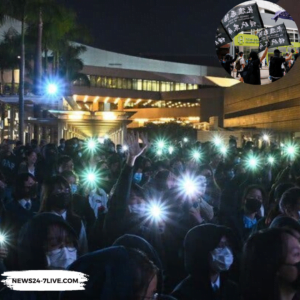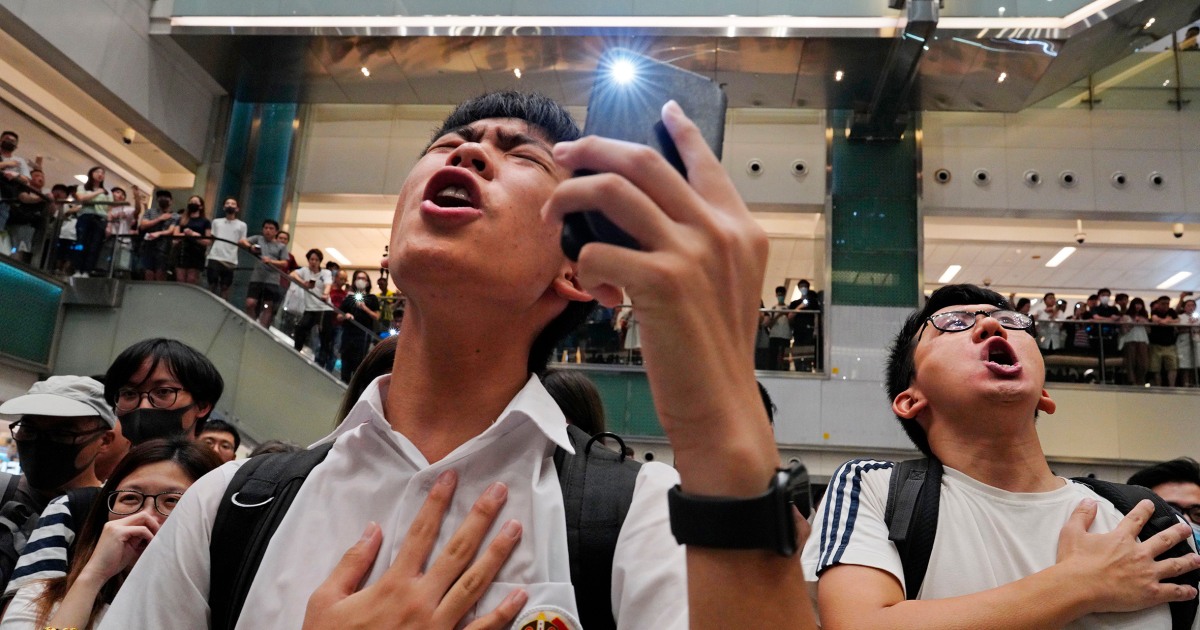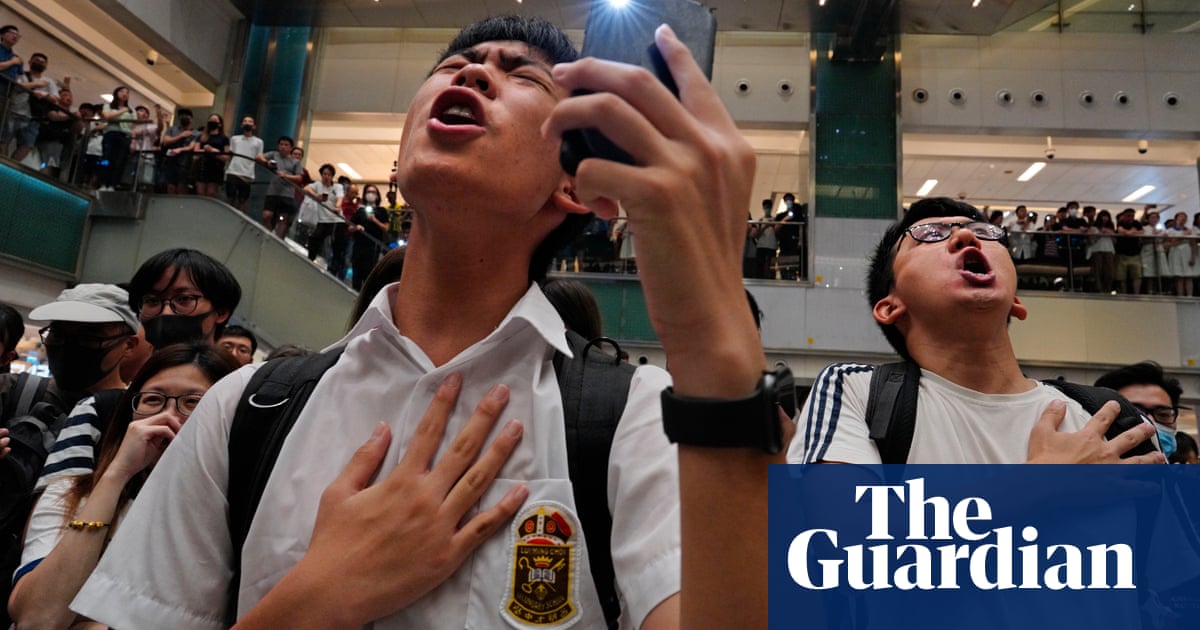Hong Kong’s judiciary has issued a rule banning the protest anthem “Glory to Hong Kong.” The decision is made by the appeals court, particularly those associated with the pro-democracy movement that swept through Hong Kong in 2019.

Also Read: UK Military Personal Data Hacked in MoD Breach
The court of appeal characterized “Glory to Hong Kong” as a “weapon” utilized to incite violence during the 2019 protests.
This ruling comes during diminishing individual rights and a crackdown on opposition figures and media outlets critical of the government.
The United States has voiced criticism against the ban condemning it as detrimental to the reputation for upholding freedom of information and expression.
This move strains already tense relations between Washington and Beijing over issues of human rights and democracy.
The ban also concerns among international organisation about the extent of Beijing’s influence over the special administrative region legal system.
This decision has challenges for tech companies operating in the special administrative region with industry groups like the Asia Internet Coalition expressing concerns about its implications for a free and open internet.
The ban’s enforcement may necessitate compliance measures from companies like Google, Spotify, and Apple, potentially affecting their operations and user experience in the region.
Authorities in Beijing have endorsed the ban framing it as a necessary measure to safeguard national security.
This alignment with mainland Chinese interests undelines the growing influence of Beijing over Hong Kong’s legal and political landscape.
The ban aligns with Beijing’s efforts to suppress dissent and assert control over the semi-autonomous territory exemplified by the imposition of the national security law in 2020.
The ban on the protest anthem is a departure from the territory’s historical commitment to freedom of expression since its handover from British to Chinese rule in 1997. The song emerged as a symbol of resistance during the 2019 protests.
Human rights groups including Amnesty International have condemned the ban as a grave infringement on freedom of expression and a violation of international human rights standards.
Also Read: Vladimir Putin’s 5th Term Ceremony Boycotted by US, UK and other EU Nations
They argue that prohibiting a protest song shows fundamental democratic principles and sets a dangerous precedent for restrictions on dissent.
“Glory to Hong Kong,” hailed as the anthem of the pro-democracy movement gained popularity during the 2019 demonstrations against a proposed extradition law.
Its defiant lyrics and emotive melody captured the spirit of resistance among people seeking greater autonomy and democratic reforms.
Initially refused by the high court last year the government’s bid to ban the anthem faced setback. The appeal court overturned this decision citing the song’s alleged role in inciting violence during the protests.
Judge Jeremy Poon characterized the anthem as a “weapon” and deemed its prohibition necessary to safeguard public order. This move has concerns about online censorship and the stifling of digital freedom.
Tech giants like Google and Spotify, through the Asia Internet Coalition are assessing the impact of the ruling on their operations in the special administrative region.
The United States has criticized the judgment expressing concerns over the erosion of Hong Kong’s autonomy and freedoms.
State Department spokesperson Matthew Miller highlighted the decision as a blow to the city’s reputation for upholding the free exchange of information and ideas.
Authorities in Beijing and Hong Kong defend the ban as necessary for safeguarding national security. They argue that the song’s advocacy for Hong Kong’s separation from China has a threat to stability and unity.
Also Read: Russia Orders Nuclear Weapons Drills in Response to Threats from West






















